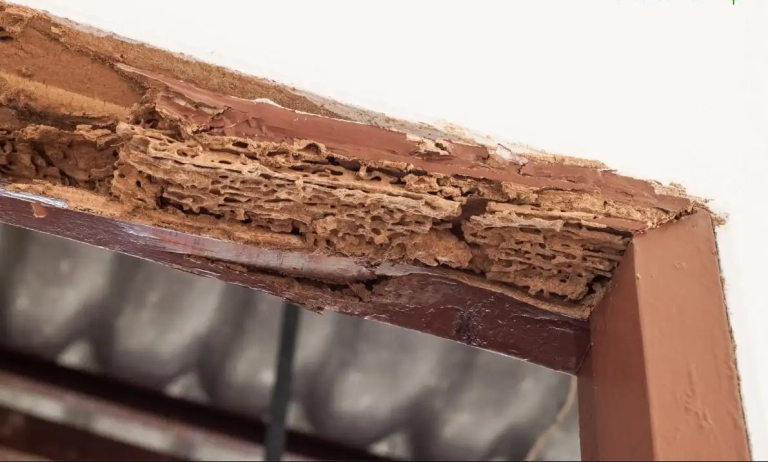Interior Design, Architecture, Residential, Residential Apartments, Anti Termite Treatments
Introduction
Termites can be a homeowner’s worst nightmare. These tiny pests have the potential to cause extensive damage to your property if left untreated. However, with the right anti-termite treatments, you can protect your home and ensure a termite-free environment. In this article, we will explore various methods and strategies to effectively combat termites and safeguard your home.
Why Should You Be Concerned About Termites?
Termites are notorious for their ability to silently destroy wooden structures within homes. These pests feed on cellulose, which is found in abundance in wood. If left unchecked, termites can weaken the structural integrity of your home, causing costly damage. Therefore, it’s crucial to take preventive measures and employ suitable anti-termite treatments to protect your property.
Signs of Termite Infestation
Before diving into the different treatments, let’s familiarize ourselves with the signs of termite infestation. By recognizing these indicators early on, you can address the issue promptly and minimize potential damage. Here are some common signs to watch out for:
-
Mud tubes: Termites construct mud tubes to travel from their nests to food sources. These pencil-sized tubes can be found along walls, foundation beams, or other surfaces.
-
Swarmers: Termite swarmers are winged reproductive termites that often emerge in large numbers during the mating season. If you notice discarded wings or swarmers around your home, it could indicate a termite infestation.
-
Hollow-sounding wood: Termites hollow out wood from the inside, leaving only a thin veneer on the surface. If your wooden structures produce a hollow sound when tapped, it could be a sign of termite activity.
-
Frass: Termite droppings, known as frass, resemble small pellets or sawdust. If you find such droppings near wooden structures or in other areas of your home, it may be a sign of termite presence.
Now that we can identify potential signs of termite infestation, let’s explore some effective anti-termite treatments for your home.
Anti Termite Treatments for Your Home
1. Soil Treatment
Soil treatment is one of the most common and effective methods to combat termites. It involves creating a chemical barrier in the soil surrounding your home’s foundation. This barrier repels or kills termites, preventing them from entering your property. Professionals can apply termiticides to the soil, ensuring comprehensive protection against termite infestations.
2. Baiting Systems
Baiting systems are another popular approach to termite control. This method involves placing termite baits strategically around your property. The baits contain slow-acting toxins that termites ingest and then share with the colony. As the poison spreads, it helps eliminate the entire termite population. Baiting systems require regular monitoring and maintenance by pest control professionals.
3. Wood Treatment
Wood treatment is essential for protecting wooden structures within your home. Specialized wood treatments, such as borate solutions, can be applied directly to the wood. These treatments penetrate the wood, creating a protective barrier against termites. Wood treatment is particularly effective during construction or when treating exposed wooden elements.
4. Fumigation
Fumigation is a highly effective treatment for severe termite infestations. It involves enclosing your entire home or specific areas in airtight tents and introducing a fumigant gas. The gas penetrates the wood and kills termites at all stages of their life cycle. Fumigation requires professional expertise and careful planning to ensure the safety of occupants and pets.
5. Physical Barriers
Physical barriers act as a preventive measure to deter termites from entering your home. These barriers can be created using materials like stainless steel mesh or sand particles of specific sizes. When properly installed, physical barriers force termites to alter their path, making it difficult for them to reach your home’s foundation.
6. Moisture Control
Termites thrive in moist environments, making moisture control crucial for termite prevention. Ensure proper ventilation in your home, fix leaky pipes and faucets, and divert water away from the foundation. By reducing excess moisture, you make your home less attractive to termites, discouraging their presence.
Frequently Asked Questions (FAQs)
1. Can I treat termites myself, or should I hire professionals?
While there are do-it-yourself termite treatments available, it’s advisable to hire professionals for effective and long-lasting results. Pest control experts have the knowledge, experience, and access to specialized products to handle termite infestations properly.
2. Are anti-termite treatments safe for my family and pets?
Yes, when applied by trained professionals, anti-termite treatments are safe for your family and pets. Pest control companies follow strict guidelines and use products that are approved for residential use.
3. How long does an anti-termite treatment last?
The longevity of an anti-termite treatment depends on various factors, such as the treatment method used and the environmental conditions. Soil treatments typically provide protection for several years, while baiting systems may require ongoing monitoring and maintenance.
4. Are there any natural alternatives to chemical treatments?
Yes, some natural alternatives, such as orange oil or neem oil, are known for their termite-repellent properties. However, their effectiveness may vary, and they might not provide comprehensive protection against termite infestations.
5. Can I prevent termite infestations entirely?
While it’s challenging to prevent termite infestations entirely, you can significantly reduce the risk by implementing preventive measures, such as regular inspections, moisture control, and maintaining a termite-resistant barrier around your home.
6. How often should I schedule termite inspections?
It’s recommended to schedule termite inspections annually or biannually, depending on the level of termite activity in your area. Regular inspections help detect early signs of infestation and ensure timely intervention.
Conclusion
Protecting your home from termite damage requires proactive measures and effective anti-termite treatments. By recognizing the signs of termite infestation, implementing preventive strategies, and seeking professional help when needed, you can safeguard your property and enjoy peace of mind. Remember, early detection and timely action are key to mitigating termite-related risks.
#NORAResidences #AvenirDevelopments #AvenirMeansFuture #Apartments #ProtectYourHomeFromTermites #SayNoToTermites #TermiteFreeLiving #TermitesBeware #DefendYourHomeAgainstTermites #TermiteWarriorsUnite #BanishTermitesForGood #TermitePreventionTips #FightBackAgainstTermites #TermiteProofYourHome #TermitesNoMore #SafeHomeFromTermites #GuardAgainstTermites #TermiteControlSolutions #TermitesMustGo #TermiteTreatmentOptions #TermitesOut #KeepTermitesAway #TermiteFreeZone and #DefendAgainstTermiteDamage






